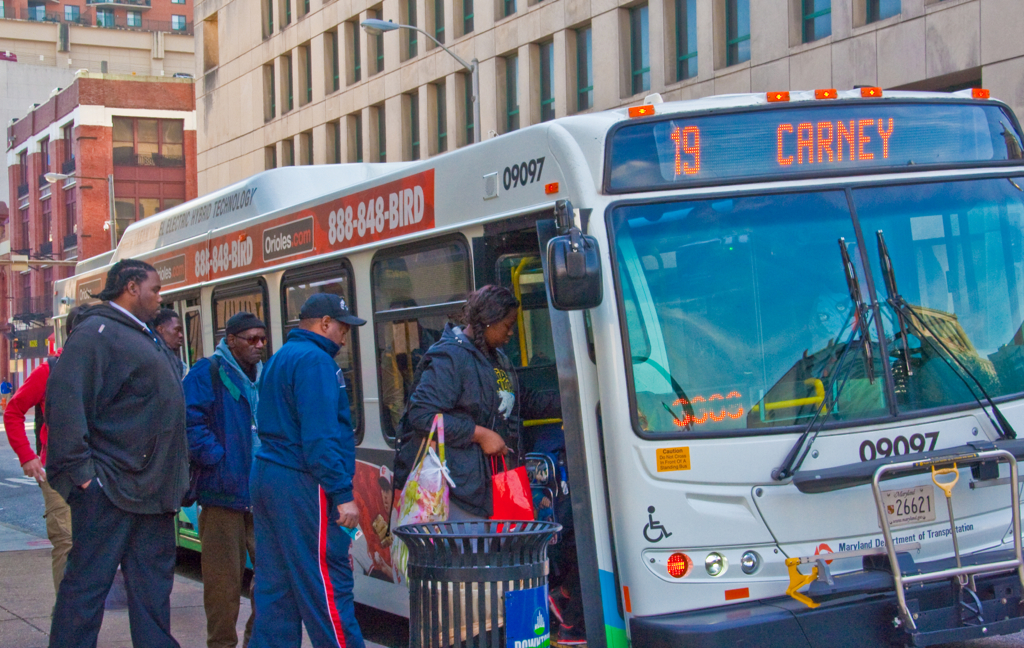When he started tackling the Maryland Transit Administration’s recently released bus tracking program, civic hacker Chris Whong said the project confirmed his belief that public agencies should focus on honing data and making it available to the public instead of building products.
“There are apps out there that are fully-functional and robust, and are ready to start serving the needs of transit riders,” Whong said Tuesday. “All they need is data.”
Now Baltimore has a functional example of what he’s talking about.
The team at Transit App, a Montreal-based company that provides real-time data for transportation in 89 markets, used the MTA data to improve its Baltimore offerings, which, according to the company’s own figures, already reach more than 20,000 users. Given the fact that the MTA doesn’t offer its new bus tracker in app form, that could be a significant development for riders.
Transit App’s director of strategy and development, Jake Sion, said he read about the MTA project — and efforts by Whong and other civic hackers to improve upon it — in a Technical.ly Baltimore article published Feb. 16. Since the free Transit App was already available in Baltimore, Sion quickly recognized that he could use the data, too.
“Because he made his project open source, we were able to use the same query,” Sion said in an email to Technical.ly Baltimore.
Whong made the data, which returns vehicle positions and route information, available on GitHub. Devs at Transit App were then able to integrate the data into their own system.
“Our in-house prediction engine can consume this data, match all vehicles’ trips to their schedule, figure out the delay and produce predictions for any stop,” Sion said.
Transit App even detailed its work in a great post on Medium. Headline: “How we saved Baltimore $600,000 in one day.”

Sion figures that only about a third of MTA buses are currently reporting their location, which isn’t a surprise given reports of the tracking system’s spotty coverage. To fill in the gaps, Transit App’s prediction engine annotates the scheduled time for the missing buses.
Like Whong, Sion believes the fact that the data is incomplete is the result of misplaced priorities by the MTA.
The agency spent years developing the bus tracking program. Meanwhile, the data released is incomplete and was kept from third-party users, and agency officials have said producing an app would cost another $600,000 they don’t have. Sion said he understands that “their ultimate goal is to provide better information to Baltimore’s transit riders.”
“I think they believed their app was the most cost effective way to do so, and luckily for them, we were able to improve on it at no additional cost,” Sion said.
Thanks to civic hackers, a Montreal company just made Baltimore’s bus system more usable







